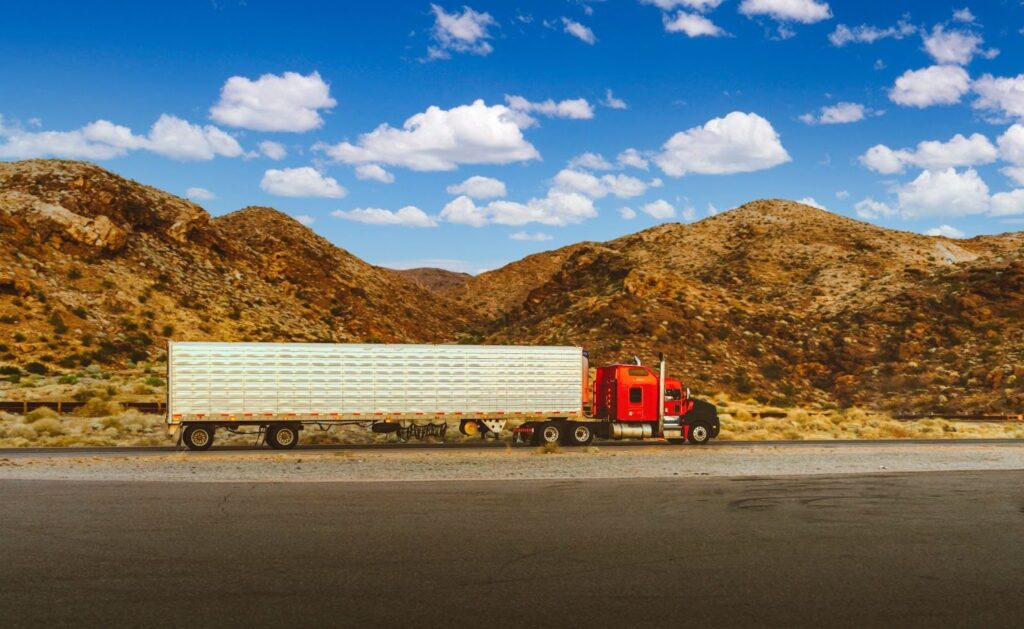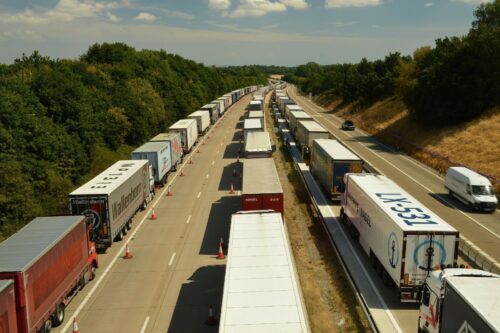Jumbo Trailer Trucks: Definition, Features, and Role in the Automotive Industry

A jumbo trailer truck stands out in the automotive industry due to its distinctive design and capacity to handle a much larger load volume than regular trucks.
Jumbo trailer trucks, often called jumbo trucks, play a pivotal role in the logistics and shipping industry, serving as the backbone of efficient transportation solutions worldwide. The term “jumbo” aptly describes the increased internal height and loading height these trucks offer.
These vehicles significantly surpass the capacity of regular trucks, making them indispensable for hauling vast amounts of goods across enormous distances. As critical automotive industry components, jumbo vehicles contribute substantially to the economy.
According to the American Trucking Associations (ATA), trucks in the United States move approximately 72.5% of all freight by weight. This equates to the trucking industry being responsible for transporting goods valued at over $10 trillion annually.
This illustrates the critical role trucks play in the national economy and ensuring the smooth operation of the global supply chain.
Features of a Jumbo Trailer Truck: The Road Train
A jumbo trailer truck stands out in the automotive industry due to its distinctive design and capacity to handle a much larger load volume than regular trucks.
These vehicles, often termed “road trains,” are engineered for efficiency, enabling the transportation of oversized items with ease and reliability.
Truck and Trailer Dimensions
Truck and trailer dimensions are critical specifications that define the length, width, and height of jumbo trailer trucks. These dimensions are crucial because they determine the type and volume of goods the vehicle can transport.
Larger dimensions are characteristic of jumbo trucks, allowing them to carry substantially more cargo than regular trucks. This capability is essential in the automotive industry for efficiently moving large quantities of goods, reducing the trips required, and maximizing logistic operations.
Payload
Payload refers to the maximum weight a truck can carry, including the cargo and the trailer’s weight. It’s a vital specification, as it impacts the vehicle’s fuel efficiency, wear and tear, and legal compliance on roads.
For jumbo trailer trucks, a higher payload capacity means the ability to transport heavier and more sizable goods, making them indispensable for industries requiring the movement of heavy equipment or large quantities of products.
Pallet Capacity and Configuration
Pallet capacity and configuration describe how many standard pallets a truck can hold and how they can be arranged. This specification is important because it affects loading efficiency and the optimization of space within the truck.
With their larger load volume, Jumbo trucks can accommodate more pallets than regular trucks, enhancing their utility in logistics by supporting more streamlined and cost-effective goods transportation.
Volume Capacity
Volume capacity measures the total space available within the truck’s cargo area, usually in cubic meters or cubic feet. As found in jumbo trucks, a higher volume capacity is essential for transporting bulky items or a much larger load volume.
This capacity enables businesses to ship larger quantities simultaneously, improving supply chain efficiency and reducing transportation costs.
Other Features
Jumbo trailer trucks have various other features to enhance their utility and performance. These may include advanced loading and unloading technologies, enhanced safety features, and fuel-efficient engines.
Such features are crucial for ensuring the trucks can handle diverse transportation needs frequently encountered in the automotive industry, from oversized loads to delicate goods, with efficiency, safety, and environmental responsibility.
Semi-Trailer vs. Jumbo Trailer Trucks
Semi-trailer and jumbo trailer trucks are both pivotal in the transportation and automotive industry, yet they serve distinct purposes and come with different features. Understanding these differences is key for businesses and logistics managers when planning transportation needs.
Size and Capacity
- Semi-trailers typically offer standard load capacities suited for a wide range of goods.
- On the other hand, Jumbo trailer trucks are designed for much larger load volumes and higher payloads, accommodating oversized items with ease.
Dimensions and Height
- Semi-trailers have standardized dimensions, fitting within regular transportation regulations.
- Unlike regular trucks, jumbo trucks feature increased internal height and loading height, making them ideal for transporting tall goods.
Flexibility in Configuration
- Semi-trailers provide a degree of flexibility, but they are generally limited to conventional cargo types.
- Jumbo trailers offer specialized configurations, including adjustable pallet capacities and configurations, to cater to specific transportation needs.
Application
- Semi-trailers are versatile and used across various sectors to transport standard goods.
- Jumbo trailer trucks are frequently employed for specialized tasks, such as hauling heavy machinery or large volumes of lightweight goods, showcasing their unique role in the automotive industry.
Automotive Industry and Jumbo Trailer Trucks

In the automotive industry, jumbo trailer trucks enhance logistical efficiency and transportation capacity. Their ability to carry much larger load volumes and heavier payloads than regular trucks makes them indispensable for shipping vehicles, parts, and machinery.
With their unique large-type design and increased internal height, these trucks provide the necessary infrastructure to support the industry’s complex supply chain needs.
By facilitating the frequent and safe transport of automotive components across vast distances, jumbo trucks ensure the seamless operation of production lines and the timely delivery of new vehicles to markets worldwide.
Frequently Asked Questions
What is a big trailer truck called?
A big trailer truck is commonly called a “jumbo trailer truck” or “jumbo truck.”
What’s the world’s biggest trailer?
The world’s biggest trailers are “road trains,” particularly prominent in Australia, designed for outback conditions.
What are big shipping trucks called?
Big shipping trucks are typically called semi-trucks or semi-trailer trucks in North America. In contexts requiring larger capacity, they are referred to as jumbo trucks or heavy-duty trucks designed to carry large volumes of goods.
What size is a mega trailer?
A mega trailer typically has dimensions up to 13.6 meters long and a loading height of up to 3 meters to accommodate more freight volume.
Transportation Giants: Jumbo Trucks
Jumbo trailer trucks, the transportation giants of the automotive industry, redefine efficiency and capacity with their larger load volume and specialized design.
Unlike regular trucks, these jumbo vehicles move vast quantities of goods, including oversized and heavy loads, with remarkable ease. Their significant dimensions and increased internal height facilitate a much larger load volume and underscore their pivotal role in global transportation and logistics.
Jumbo trucks remain indispensable, frequently navigating the highways of commerce to deliver the lifeblood of industries and economies worldwide.
